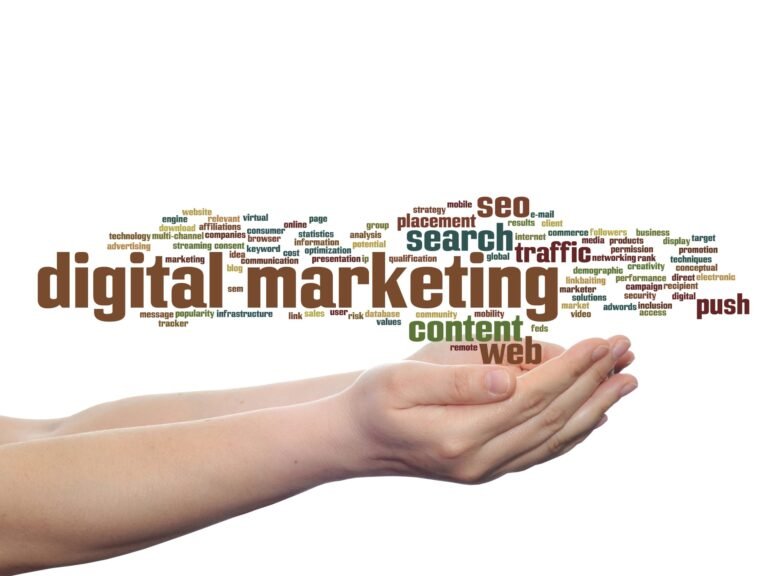How to Choose the Best Digital Marketing Course Near You
In today’s fast-paced digital landscape, businesses are increasingly relying on digital marketing to reach their target audience. As a result, digital marketing skills are in high demand, making it a great career option. Whether you’re a student, a job seeker, a business owner, or a professional looking to upskill, choosing the right digital marketing course in your area is crucial for career success. But with so many options available, how do you pick the best one? Don’t worry! This comprehensive guide will help you select the best digital marketing training program that aligns with your career goals and aspirations.
Why Take a Digital Marketing Course?
1. High Demand for Digital Marketers
With the increasing use of the internet and digital platforms, businesses of all sizes need skilled professionals who can handle online marketing campaigns effectively.
2. Diverse Career Opportunities
A career in digital marketing offers multiple job roles, including:
-
SEO Specialist
-
PPC Expert
-
Content Marketer
-
Email Marketing Strategist
-
Digital Marketing Consultant
3. Entrepreneurial and Freelance Potential
Digital marketing skills empower individuals to start their own businesses or work as freelancers, providing services to global clients.
4. Cost-Effective and Scalable Career Path
Unlike traditional marketing, digital marketing requires minimal investment but yields significant results, making it a preferred choice for businesses and professionals alike.
How to Choose the Right Digital Marketing Course Near You
With so many digital marketing course available, here are key factors to consider before enrolling:
1. Check the Course Content and Modules
A comprehensive digital marketing course should cover the following topics:
-
Search Engine Optimization (SEO) – Learn how to rank websites higher on search engines.
-
Pay-Per-Click Advertising (PPC) – Master Google Ads and paid marketing techniques.
-
Social Media Marketing (SMM) – Understand how to leverage platforms like Facebook, Instagram, LinkedIn, and Twitter for marketing.
-
Content Marketing – Learn how to create and distribute valuable content.
-
Email Marketing – Discover strategies to grow and engage an email list.
-
Google Analytics and Data Analysis – Gain insights into user behavior and campaign performance.
-
Affiliate Marketing – Explore ways to earn commissions by promoting products online.
-
E-commerce Marketing – Learn how to drive traffic and sales for online stores.
Make sure the course syllabus is up-to-date with the latest industry trends and tools.
2. Look for Hands-On Training and Practical Experience
The best way to learn digital marketing course is through practical application. Choose a course that offers:
-
Live projects and case studies
-
Real-time assignments
-
Hands-on training with digital marketing tools like Google Ads, SEMrush, Ahrefs, and HubSpot
-
Internship opportunities with real-world experience
3. Check the Reputation of the Training Institute
The reputation of the institute plays a crucial role in the quality of education you receive. Before enrolling, check:
-
Google reviews and ratings
-
Testimonials from past students
-
Success stories and placement records
-
Industry collaborations and partnerships
4. Who Are the Trainers?
Your learning experience depends on the expertise of the trainers. Verify if the instructors:
-
Have real-world experience in digital marketing course
-
Have worked with renowned brands or agencies
-
Have positive student feedback
-
Are Google-certified professionals
5. Course Duration and Flexibility
Different courses have different durations. If you’re a working professional or student, opt for courses that offer:
-
Weekend or evening classes
-
Online and offline learning modes
-
Self-paced learning options
-
Lifetime access to course materials
6. Certifications Provided
A good digital marketing certification adds value to your resume. Look for courses that offer recognized certifications like:
-
Google Ads Certification
-
Google Analytics Certification
-
HubSpot Content Marketing Certification
-
Facebook Blueprint Certification
-
SEMrush SEO Certification
Certified professionals often have better job prospects and higher salary packages.
7. Job Placement Assistance and Career Support
A reliable digital marketing institute should provide job assistance, including:
-
Resume-building sessions
-
Interview preparation guidance
-
Internship opportunities
-
Job referrals and placement support
8. Course Fees and Return on Investment (ROI)
Digital marketing courses come in various price ranges. Consider the following before making a decision:
-
The total cost of the course
-
Availability of scholarships, discounts, or installment plans
-
Long-term career benefits and salary prospects
Online vs. Offline Digital Marketing Courses: Which One to Choose?
Many students wonder whether they should opt for an online course or an in-person classroom training program. Here’s a quick comparison:
| Factor | Online Course | Offline Course |
|---|---|---|
| Flexibility | High – Learn at your own pace | Fixed schedule |
| Accessibility | Available from anywhere | Requires physical presence |
| Interaction | Limited to virtual communication | Face-to-face learning experience |
| Cost | Usually more affordable | Can be expensive |
Final Thoughts
Ready to Get Started?
